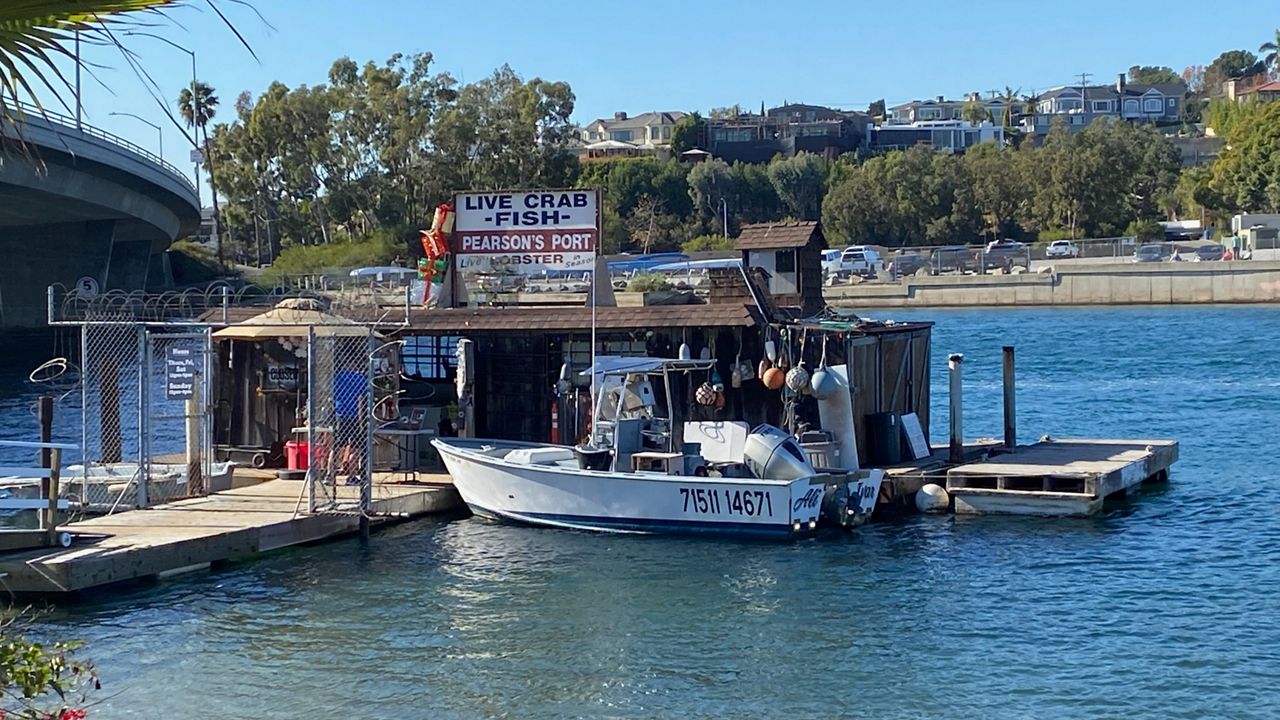NEWPORT BEACH, Calif. — On the day thousands of gallons of oil spilled, Terese Pearson could smell it. On her way home from the Pacific Air Show in Huntington Beach, raw crude oil had begun to make its way into the canals and wetlands that surround her home.
She knew what it meant for her fish shop, Pearson’s Port in Newport Beach, and the freshly opened lobster season.
Nearly a month after the Oct. 3 spill, the business is struggling. Revenues are down about 80%, she said, and zero local stock has made it to the ice troughs in the store. A fishing moratorium has put her and many of the 272 permitted lobster fishing boats under deep financial duress.
The California Department of Fish and Wildlife has been testing the waters to establish when they can again be fished, but without a clear schedule for reopening, Pearson's is hurting.
“There are low-interest loans available, but we’re not interested in those at this time. We’re interested in going back to work and hopefully fishing before the holidays so we can start making some money. I’m certainly not interested in going backward and owing anyone money,” she said.
This is the first year Person’s Port has not had a lobster on opening day of fishing since 1971, the year the business started. Lobsters are Pearson’s biggest revenue source this time of year, and their long-standing customers expect to get their holiday lobster orders down in advance of the big family gatherings.
“It seems like now our concern is public perception. Because the beaches are open completely. And people don’t understand that we can’t fish so they’re very disappointed when we don’t have any of the local items they’re used to us having,” she said.
While authorities test the waters for toxicity levels, it’s unclear what impact the spill will have on future fish populations. Crude oil can harm fisheries by destroying food sources or harming the animals themselves.
It may be years before the full severity of the spill is completely clear.
For Pearson’s port, the threat is existential.
“We’re just hanging on by a thread,” she said.
The primary pain point, aside from the delay to fishing, has been uncertainty over when fishing boats would be able to get back to business. The struggle so far has been to find something to offer customers. The shop has sold salmon, a regular import for them, and has exploited a good relationship with a New Zealand-based supplier who can offer them stock from that country’s upcoming summer season.
Pearson said other fishers she knows have taken biologists out to areas affected by the spill. And officials tell her it could take another five to eight weeks before they’re sure if it’s safe to fish again. If fishing remains closed through the holidays, Pearson said that could put some fish suppliers out of business, but she doesn’t think it’ll come to that.
“Nature has a way of taking care of us,” she said.



